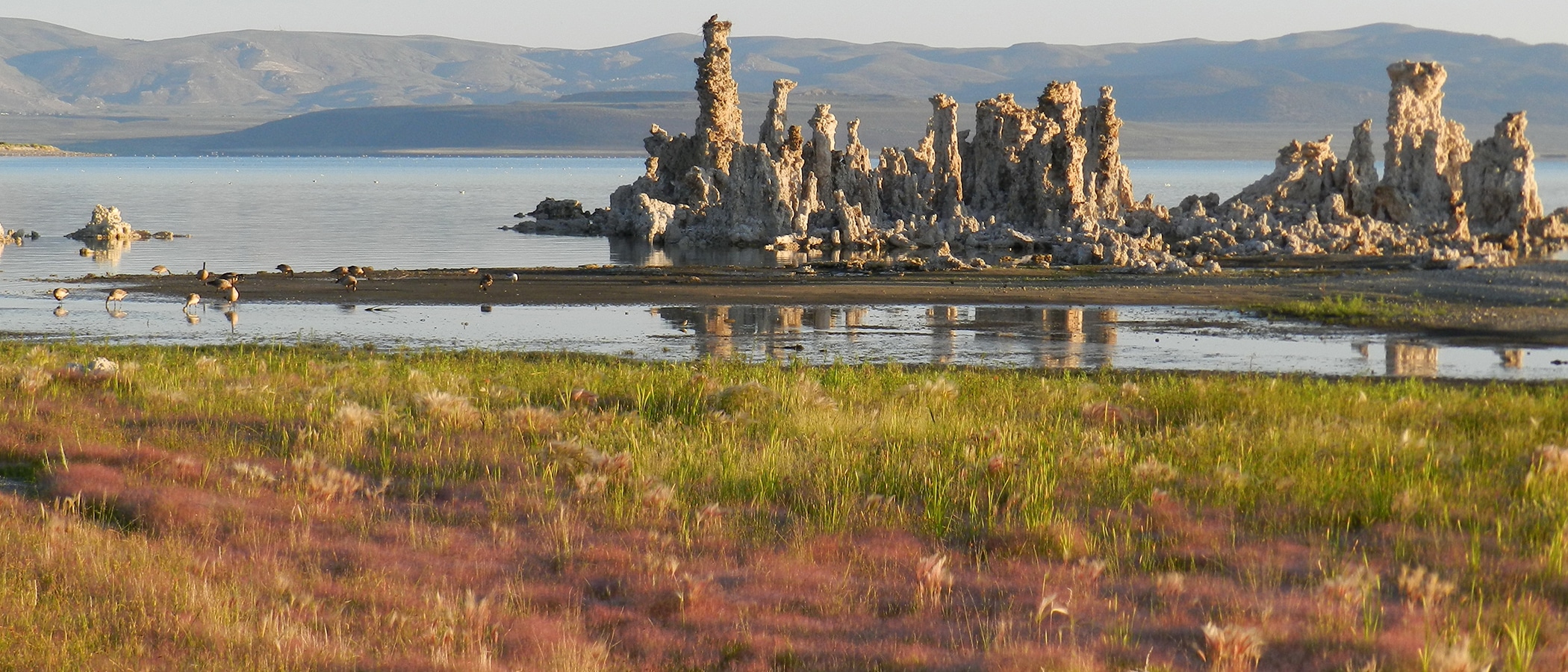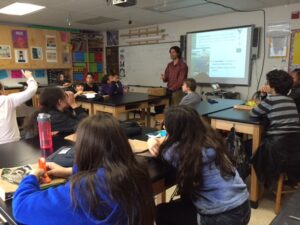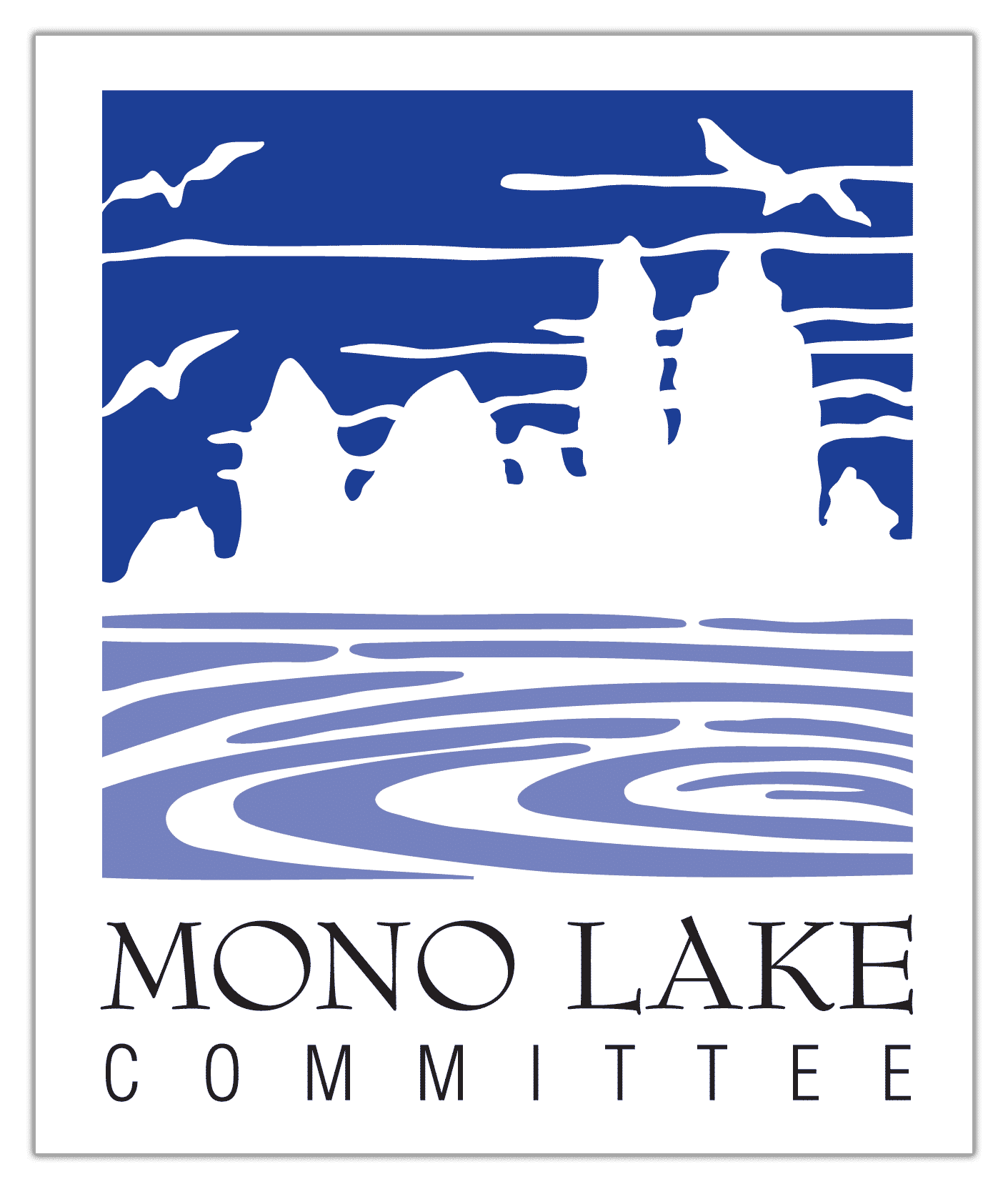
Last week, I received a text message from Luis Santos, a friend and coordinator of The Grateful Dads, a hiking group to which I belong. He was wondering if I could come talk to his sixth grade students about Mono Lake, since they were studying it in science class.

I immediately was excited about the idea. I love sharing the Mono Lake story, and my field seminars have been highly rated. Also, my own sixth grade science class and my teacher, Mr. Lewis, were very influential in my life, and I can trace many of my current interests and scientific curiosity back to that time.
What I also remember about my own education was how little I knew about ecology, and how hungry I was for the knowledge once I discovered it. I had no idea how horribly destructive water projects have been to California’s natural environment. It feels appropriate, and maybe even a bit ironic, that now I spend my life educating people about the impacts of excessive water use and development, and telling them about the creative and cooperative solutions that can meet the needs of both people and ecosystems. If I could share a glimmer of that awareness with even one child who wouldn’t otherwise gain that knowledge, visiting the class would be time well spent.
Three days later, I walked in the door of Ecole Bilingue de Berkeley, a French school. The receptionist immediately asked if I had worked for the Mono Lake Committee very long—and when I told her yes, for 20 years, she told me both of her sisters had been interns! You can read more about Julie and Lisa Curtis here.
Luis began the classes with a short meditation, followed by a recap of what they had learned about ecosystems. He reviewed terms such as biotic, abiotic, producers, consumers, and decomposers. And he reminded them that they watched The Mono Lake Story film the day before. Then he introduced me.
Now, I’ve led many tours in the Mono Basin, and given many lectures, and even taught First Aid and CPR classes to adults. But I haven’t taught children in a classroom setting since 2000, when I taught a three-week web design class at Lee Vining High School. I was feeling a bit rusty, but I needn’t have worried—whether you are leading a tour at Mono Lake, talking to tourists in the Information Center & Bookstore, or standing in a classroom, Mono Lake pretty much teaches itself. It is such an amazing place, with such amazing creatures, and such a compelling story, it is no wonder it is the topic of sixth grade science class.
So I told the story of the lake’s chemistry, the algae, the brine shrimp, the alkali flies, the California Gulls, the Eared Grebes, and the phalaropes. I told them about the Los Angeles Aqueduct, the damage to the creeks and lake, and the fight to save them and current efforts to restore them. And I made sure to tell them that there is a place like Mono Lake everywhere we get water, so we all need to conserve water to help those places. Both classes knew that their water comes from Hetch Hetchy Reservoir, in Yosemite National Park. Both classes were full of engaged, interested kids, who asked thoughtful questions.
The level of ecosystem knowledge in sixth graders seems to be far more advanced today than it was 30 years ago. This is encouraging and necessary for a future that will bring many challenges and difficult decisions. I am hopeful that when these children are the decision-makers, the Mono Lake story will be so well known that California’s citizens—led by knowledge and not propaganda—will have the awareness to skillfully avoid repeating the mistakes of the past. We are making that future into reality, one child and one class at a time.

And who knows! In ten years one of those sixth graders may remember your talk and apply to be an intern at the Mono Lake Committee! Great report!
Hi I was wondering why there is not a Kuzedika speaking @ the schools regarding mono lake?
Hi Karen,
I don’t know, but I recommend contacting the Mono Lake Kutzadika’a Paiute Indian Community to see what outreach activities they are doing with local schools.
I didn’t mention this in the blog, but I did make sure to tell the kids about the native people, and they seemed very interested!